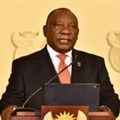Alcohol industry associations, the National Liquor Traders and the South African Liquor Brandowners Association (Salba), have called for urgent dialogue with President Cyril Ramaphosa following the extension of the alcohol ban announced on Sunday night.

Source: Valeria Boltneva via
Pexels“There is an apparent misalignment between the statements made by the president that consultations are taking place with all affected sectors, when in fact it is a monologue, with industry making numerous proposals and sharing research while Government keeps its cards close to its chest. At no stage during the past 15 months has Government shared the science on which they have based their decisions, despite repeated requests to do so,” said National Liquor Traders convener Lucky Ntimane.
Sibani Mngadi, chairperson of Salba, which represents alcohol manufacturers including Distell, Heineken, Diageo, Pernod Ricard and DGB, said the alcohol industry, restaurants, taverns and tourism sectors are carrying the heaviest burden of the inadequate government response to the Covid-19 pandemic, which relied primarily on the bans of alcohol sales.
The industry estimates that it has lost retail sales revenue of R6,1bn as a result of the 14-day ban and that the government has lost an estimated R3,6bn in direct tax revenue (excluding excise tax) and the potential R1,5bn in excise tax income. According to the associations, the 14-day ban put an estimated 4,604 jobs at risk, bringing the total jobs at risk for all bans to date to 233,547 jobs (equivalent to 1.49% of the national total for formal and informal employment for 2020).
PAIA application to the NCCC
Meanwhile, the Beer Association of South Africa (Basa) announced last night that it will be submitting an urgent Promotion of Access to Information Act (PAIA) application to the National Covid Command Council (NCCC) to obtain the data and evidence on which it based its decision to extend the fourth alcohol ban for another two weeks.
"In all our discussions with Government, it has been acknowledged that the main driver of infections is large gatherings and the failure to observe mask-wearing and social distancing protocols. We have also not been provided with the data showing the link between alcohol and increased hospital admissions, despite requesting this from government on numerous occasions.
"We have therefore decided to submit our PAIA application in order to understand the rationale for the extension of the current ban when it is clear that thousands more jobs will be shed and billions more will be lost to the national fiscus," Basa said.
Basa noted the announcement by President Ramaphosa that Covid-19 TERS funding will be extended to industries affected by the adjusted alert Level 4 lockdown. "We eagerly await the details of this assistance as businesses within the beer industry have received zero financial assistance since the start of the lockdown in March last year," it said.
Blind eye turned to illegal activity
“Despite all forms of gatherings being banned under the current lockdown regulations, the country witnessed a large convergence of people at the home of former President Zuma in Nkandla, but the police took no action. They ignored the public drinking and the public discharge of firearms that was broadcast on national TV,” said Mngadi, who added that when the KZN infections spike in the next few weeks because of these illegal gatherings, it will be the alcohol industry that will pay the price.
Furthermore, liquor premises are becoming primary target of looting linked to the political unrest in KZN and organised crimes in other provinces where alcohol warehouse and liquor stores are targeted. “The continued prohibition of legal alcohol sales only serves to promote more criminal activities including the industrial-scale production of illicit alcohol discovered in Welkom, Free State this weekend,” he said.
The industry has argued that restricting mobility through curfews, curbing gatherings and other protective measures including hygiene and sanitation have been recognised globally as the most effective and pragmatic approach to halting the spread of COVID-19. Along with this is a strong emphasis on the need for government to play its role in enforcement.
SA lags on vaccine rollout
Mngadi said SA has had the hardest of Covid-19 lockdowns globally but has nothing to show for it in terms of results relative to its peers. “SA has the highest number of Covid-19 infections in Africa at more than two million, with approximately 62,000 deaths. The second highest country in the continent is Morocco, with 530,000 cases, a quarter of SA infections and less than 10,000 deaths. SA economic peers in the Africa region, Kenya and Nigeria are at 184,000 and 168,000 cases respectively, and both have not had a total ban of alcohol sales,” he said.
Salba CEO Kurt Moore said the speedy rollout of the vaccine was the only way to return businesses to some form of normality, but the South African government is lagging far behind its peers. “Seychelles, Mauritius and Morocco lead the vaccination rate per 100 people in Africa. Closer to home in the SADC sub-region, Botswana, Zimbabwe and Namibia are ahead of SA in the rollout of Covid-19 vaccine per 100 people,” said Moore.
Moore added that the announcement that public vaccine sites will start operating on weekends from August was an unacceptable response to the pandemic and called upon the president and the health minister to introduce weekend vaccines from Saturday, 17 July 2021.
Mngadi said the lack of compliance with the wearing of masks is there for everyone to see “It is a behavioural issue that should have been addressed through effective health education and communication similar to that promoting condom use for HIV prevention. But unfortunately, the R150m Covid-19 communication tender is currently a subject of a corruption investigation that the president does not address in his family meeting,” said Mngadi.









































